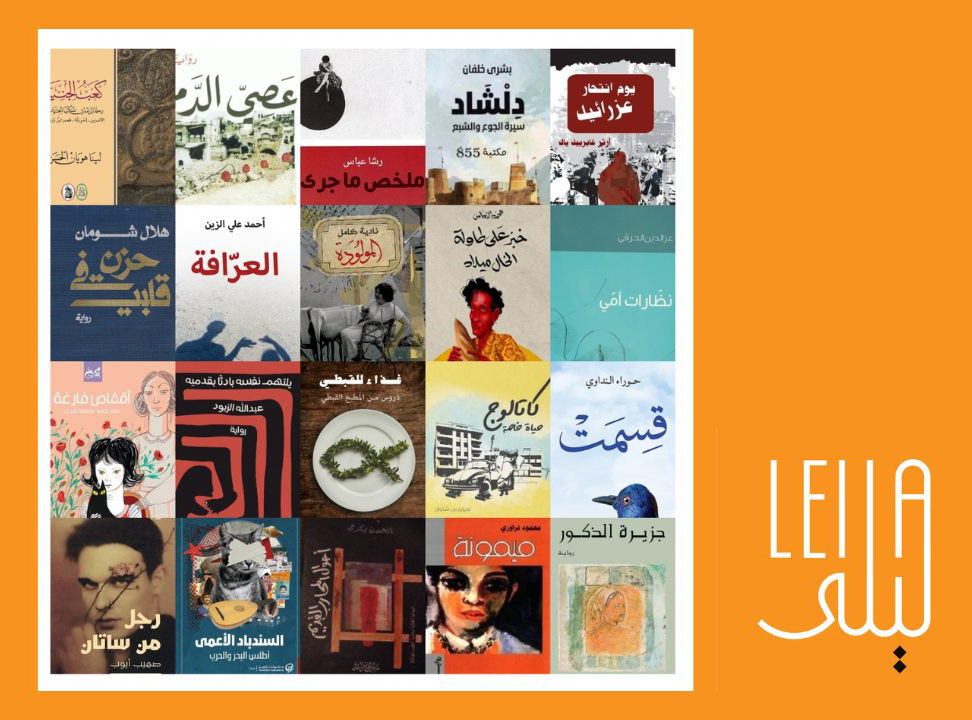
A new project set up to promote the translation and distribution of books from the Arabic-speaking literary scene into Europe, LEILA is funded by a European Union program and designed and implemented by iReMMO and ATLAS in France, BOZAR in Belgium and Federation Tunisienne des Editeurs in Tunisia.
The project has three main aims:
1. to promote the new Arabic-language literary scene in Europe through a selection of 60 books and 80 authors; the books, chosen by a Euro-Arab jury of specialists are promoted via the organisation’s new website.
2. to organise meetings and workshops to bring together professionals active in the field of Arabic literature; some have already taken place in Paris, Tunis, and Berlin.
3. to reinforce the training and visibility of a new generation of Arabic translators, bringing them together at one-week residencies to share experiences and brainstorm ways to promote their work and role as literary scouts; the first of these took place in Arles.
The LEILA project manager, Anne Millet, is based at iReMMO, a French independent think tank focusing on the Middle-East and the Mediterranean region. Having moved to Cairo to learn Arabic, she worked for the French Institute’s Bureau du livre organising conferences and debates around literature. In 2017 she also began working with iReMMO to develop participation in the literary festival Maghreb-Orient des livres. As she explains: “Through these professional networks, I met many people working in the field of translated Arabic literature and realized that there were several ongoing initiatives in Europe that had the same objective: to promote Arabic literature and its translation. After the 2011 Arab Spring, there was a renewed curiosity in Europe for the cultural production coming from the Arab world. After consulting, we decided to work at a European level and apply for an EU Creative Europe grant. From the start, we were lucky to be able to work with great partners.”
While the initial creation of LEILA’s website, and the selection of the jury, was a challenge, there has been huge support for the project overall. “We were lucky to work with Chirine El Messiri for project consultancy,” continued Millet, “Jule Rubi at Atlas who handled the jury selection process, and the journalist Olivia Snaije, who covers the publishing industry and has a good knowledge of the Arab world, who edited the website, doing research, writing, and proofreading work.”
While bringing together professionals and commissioning translation samples for the titles selected by the jury, the organisers realized it was impossible to address all 27 countries and 24 languages of the European Union; the decision was therefore taken to focus on languages that would have the most readers (English, French and German) and the countries with the largest markets. “However,” adds Millet, “we found in some smaller markets very valuable resources; translators, specialists, and publishers, that allowed us to include a lot of diversity in European countries and languages addressed in the project such as Finland, Bulgaria, or the Netherlands.”
The other main challenge is finances. While European funding constituted more than 40% of the initial budget, the requisite additional funding was eventually received from various organisations that made it possible to design an information-rich website that provides a valuable resource for publishers interested in Arabic literature.
While LEILA has been a pilot project with funding for a limited period, it’s hoped that there will be a way to keep the website updated with new titles and authors. “The next logical step,” said Millet, “would be for it to come under the wing of a strong independent cultural organization that could continue to grow the work of selecting and promoting titles, and of gathering professionals working in the field on a regular basis. Meeting and working at a European level has been a great experience, and we hope it will continue.”
In addition to iReMMO, the project consortium members are ATLAS (France), a cultural non-profit association promoting literary translation; BOZAR / Mahmoud Darwish Chair (Belgium), one of Europe’s major multidisciplinary cultural institution; Fédération Tunisienne des Editeurs (Tunisia), an independent association created in 2018 promoting publishing in Tunisia. LEILA Project Manager Anne Millet can be contacted on: [email protected]
A version of this article appeared in the 10/23/2023 issue of Publishers Weekly under the headline: LEILA: Arabic Literature in European Languages
